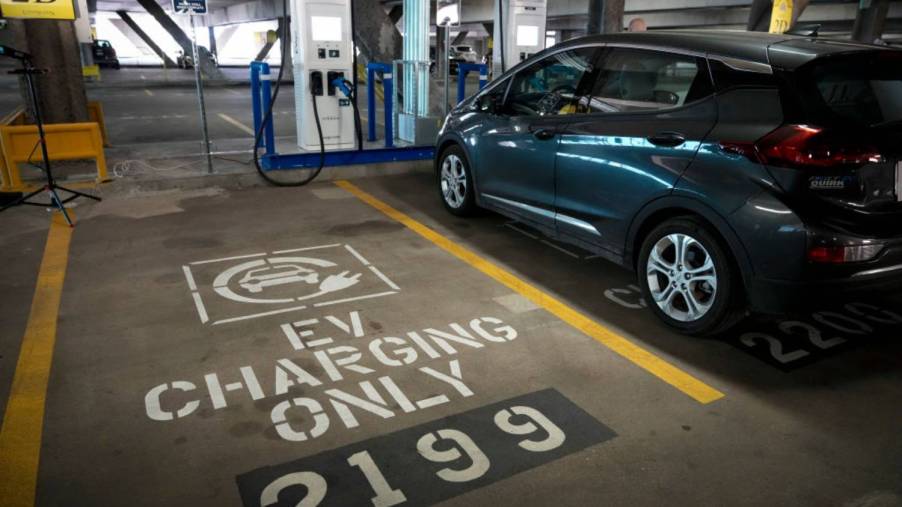
Why Are Electric Cars so Divisive?
Let’s talk about EVs. Electric cars have been a big topic of conversation now for years. And while EVs were once a vision of the future, today, they’re a mainstream reality. The narrative about electric vehicles has shifted in more recent years, seeming to create a clear divide among consumers.
So, are you team EV, or are you anti-EV? And why are electric cars such a divisive subject? Keep reading to see how the EV culture war has taken shape and what it might mean for the future.
There was a time when everyone wanted an EV
Car tribalism didn’t used to be a thing. In fact, it wasn’t all that long ago that electric vehicles (or the prospect of them) were exciting to almost everyone. Dating back to the 20th century, electric car concepts were high-society’s most in-demand commodity.
There were electric car designs dating back to 1896-1930. In 1900, New York City actually had a fleet of electric taxis on the road, according to Curbed. The Model T, with its far more affordable price tag, is said to have derailed electric vehicles of the time.
People back then loved EVs because they didn’t smell, weren’t as loud, and were much easier to operate. And since then, EVs continued to enamor consumers as even more stylish and realistic concepts came to life. Hollywood sensationalized electric vehicles. Then, the oil crisis of the 1970s had everyone frantically looking for gas alternatives. Today’s EV support is a response to a growing environmental concern for nature and the need to reduce harmful emissions.
But somewhere in there, the narrative shifted, creating two clear camps on either side of the EV movement. And while most automakers today are committing to some timeline of electrification in the years to come, not all consumers are ready to jump on board anymore.
Supporters of the electric vehicle movement
Pew Research Center shared results of a recent study whereby four in 10 Americans are “very likely” or “somewhat likely” to seriously consider an EV as their next purchase. Passionate supporters of EVs still champion the cleaner, quieter, and tech-infused cars over gas-powered alternatives.
They’re typically citing advantages relating to the preservation of the environment and energy. They’re equally passionate about voicing their concerns for improvements in the charging station infrastructure, safer innovations, and more affordable EV options too.
Benefits of owning and regularly driving an electric vehicle include:
- Battery power is more eco-friendly than gas power.
- Consumers save money on gas.
- Fewer maintenance requirements.
- Improved vehicle performance.
Opposers of the electric vehicle movement
CNBC reported that almost half of Americans say they’re “unlikely to buy an EV as their next vehicle.” That’s millions of car-buying consumers who aren’t convinced that electric vehicles bring the value they need. And as The Guardian shared, electric vehicles have become a political hot topic, polarizing and segmenting consumers along their political views and not so much directly relating to EVs themselves. And talks of government regulations regarding EV-related mandates aren’t sitting well with many.
Other disadvantages of EVs that deter consumers include:
- Difficulty finding charging station infrastructure in all regions.
- Charging a vehicle takes longer than filling a gas tank.
- EVs cost more to buy and require at-home charging stations.
- EV battery replacement is costly.
“Cars and roadways,” says Yunis Alam, the sociology head at the University of Bradford, “have always been contested objects.” He goes on to point out that what people drive embodies everything from freedom and self-reflection and basic transportation to limo-level wealth and luxury. Cars are a part of who we are as a culture. And electric vehicles, like any other vehicle, are going to play into that sense of personal liberty.
No matter what side you’re on of the environment debate, the job creation debate, the fossil fuel industry debate, or the electrification debate, you’re likely closer to the middle than you might realize, as are most Americans.


